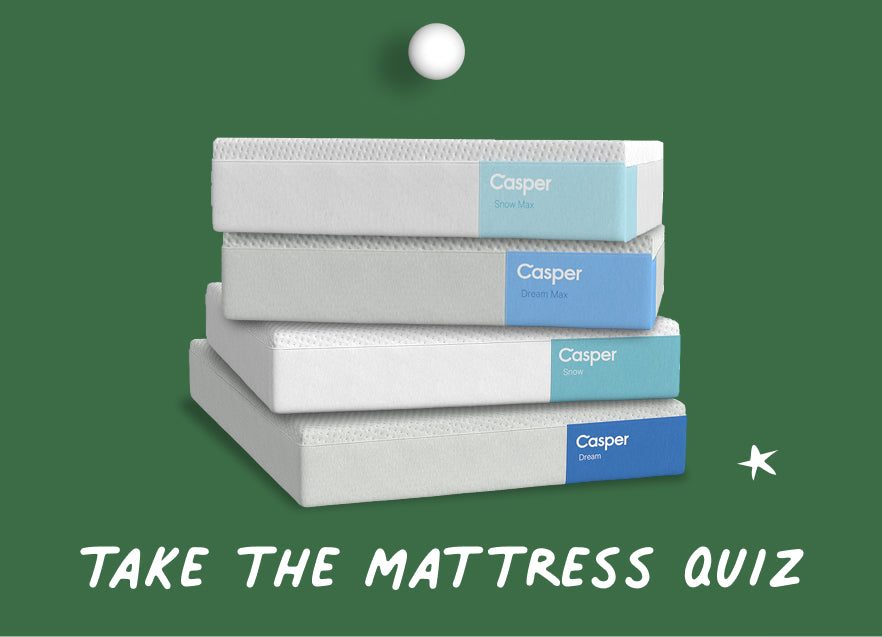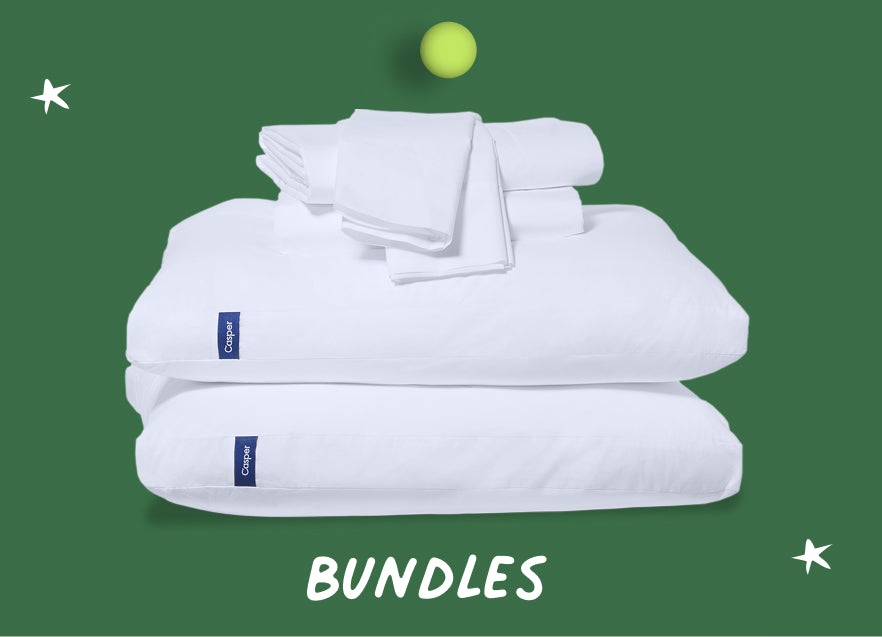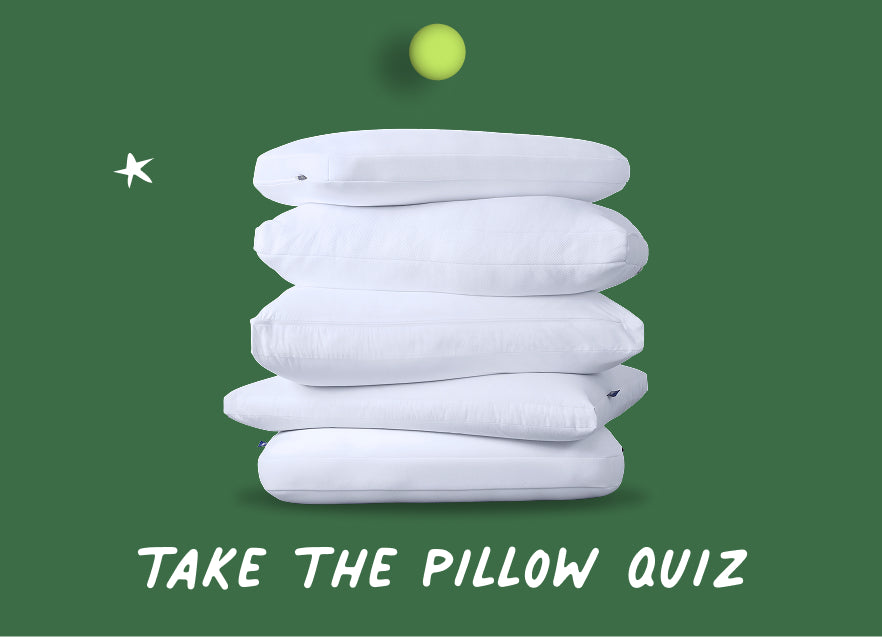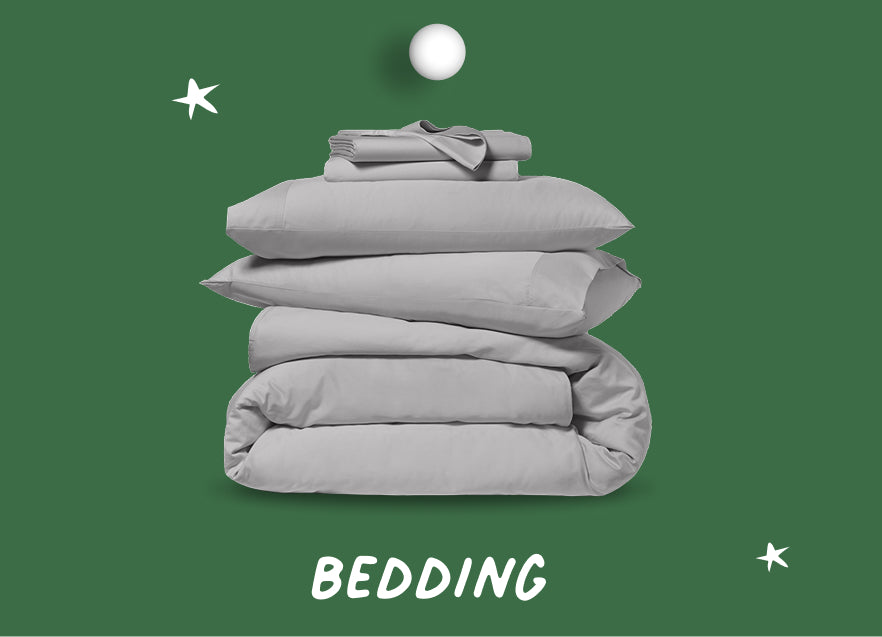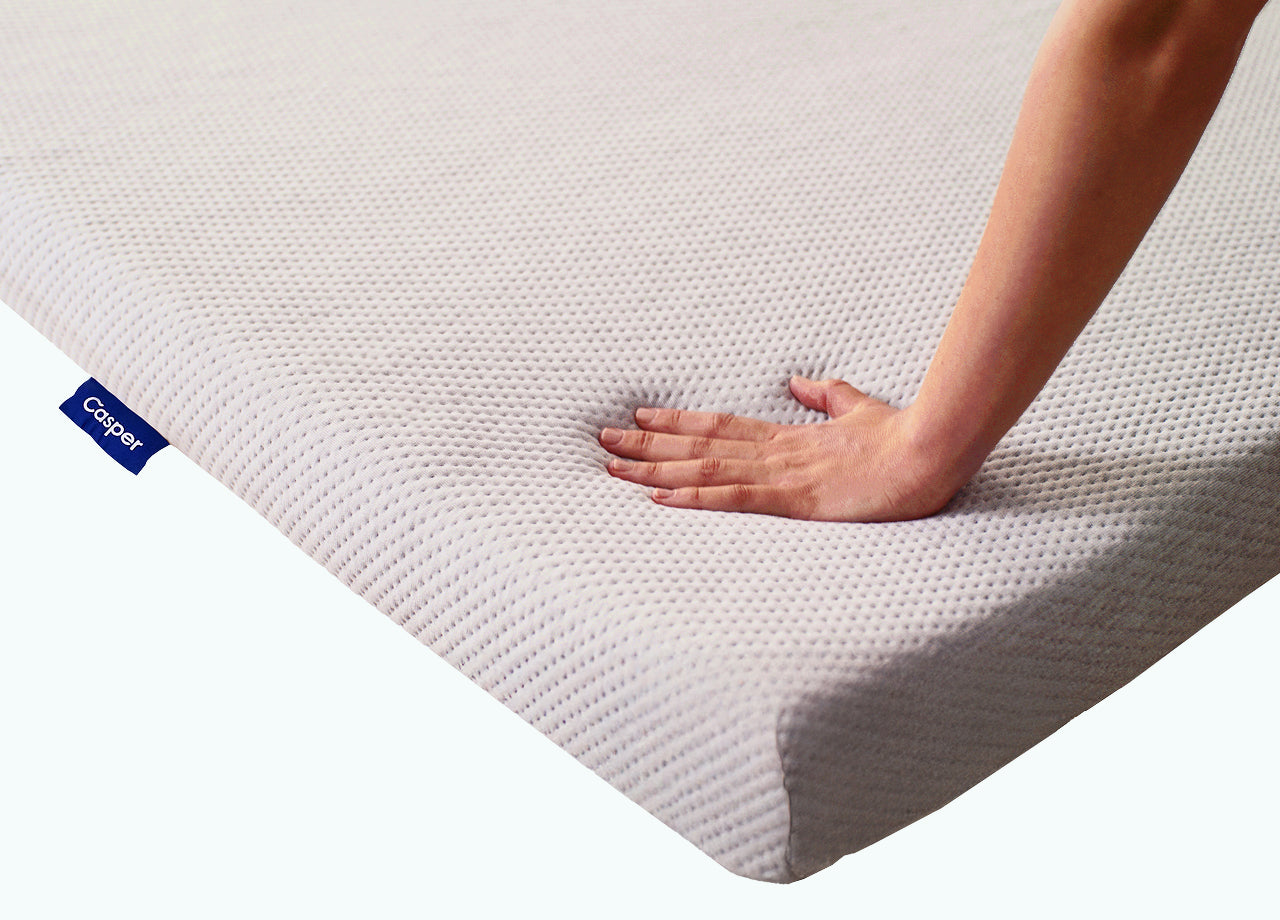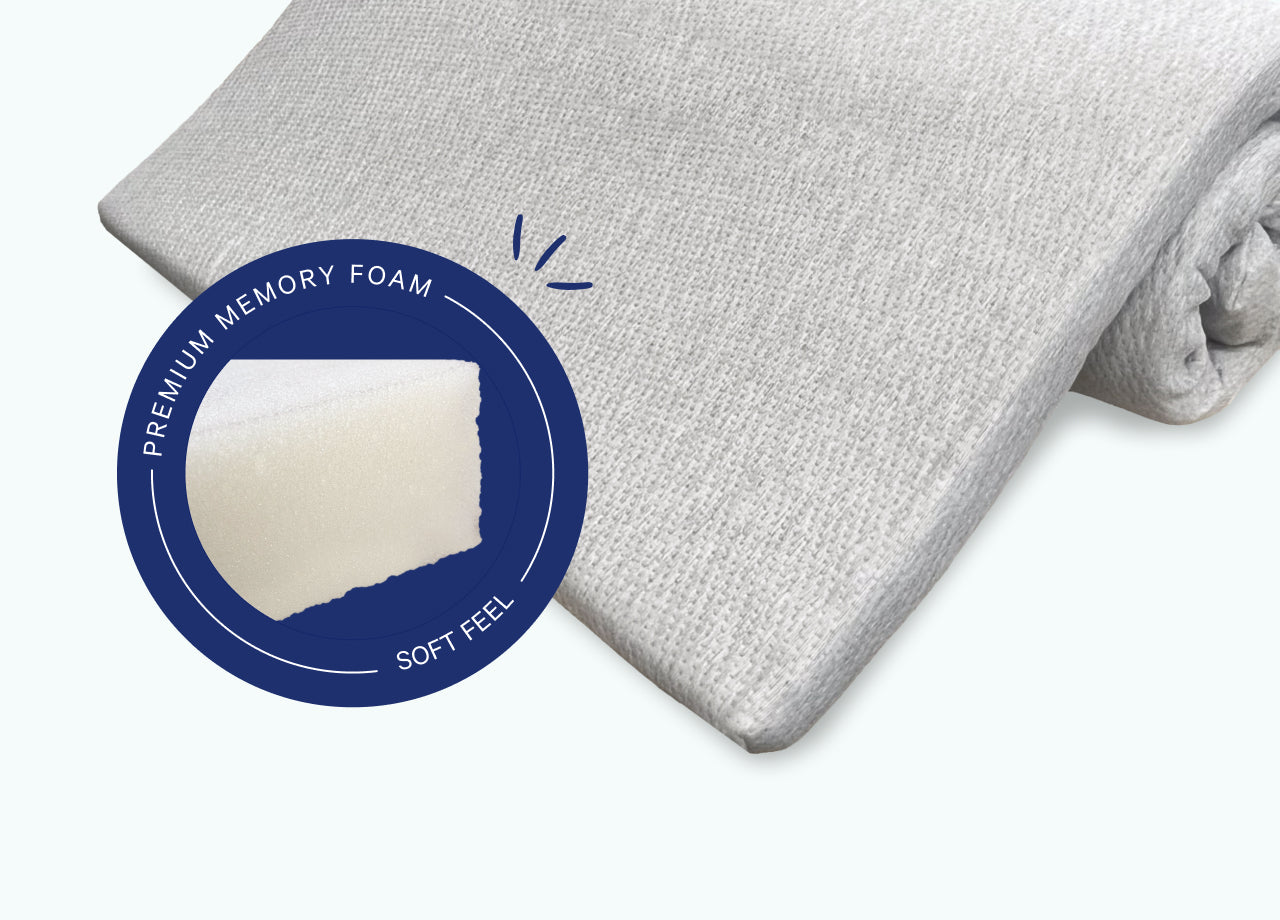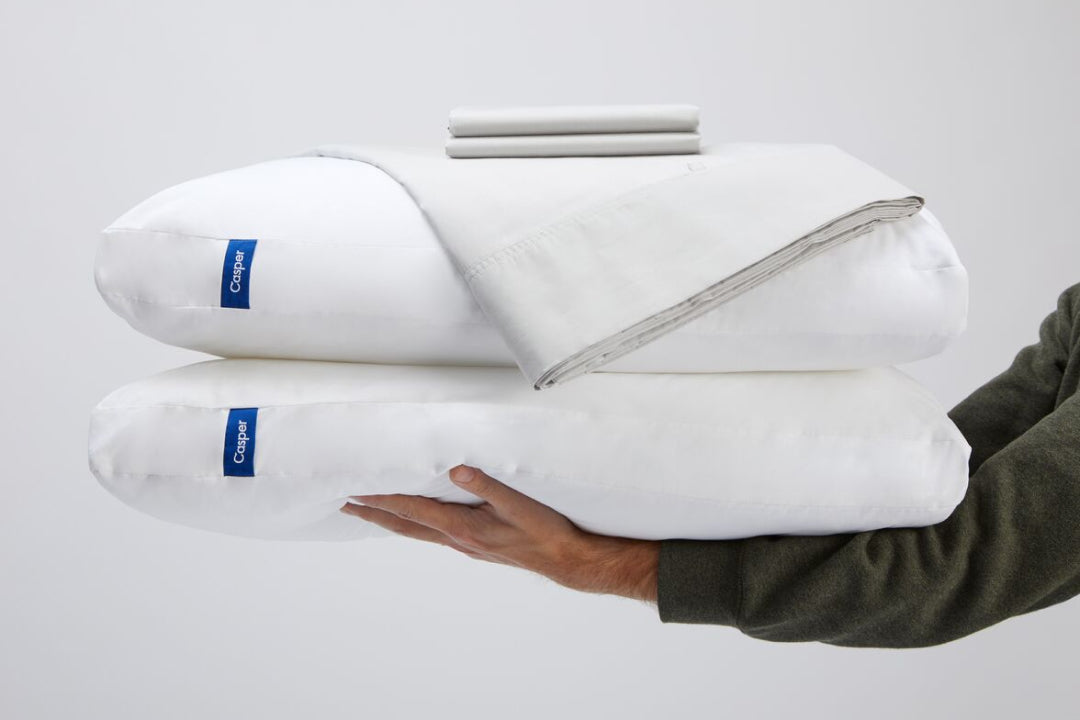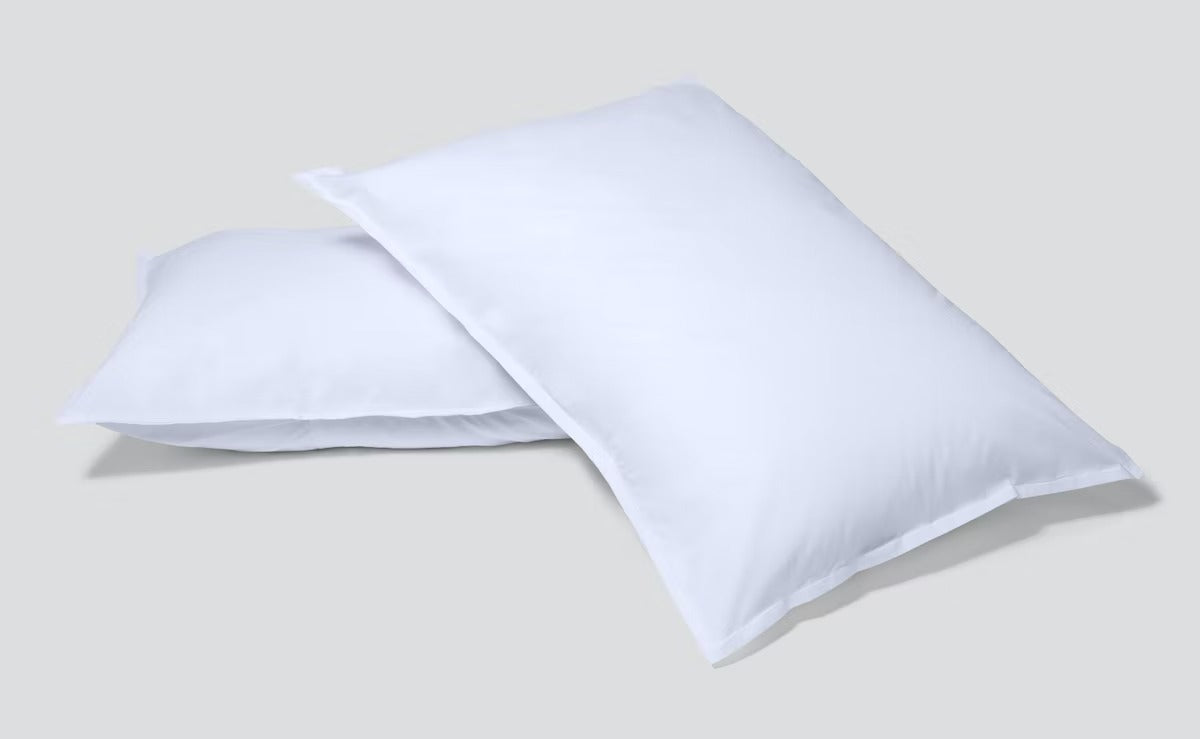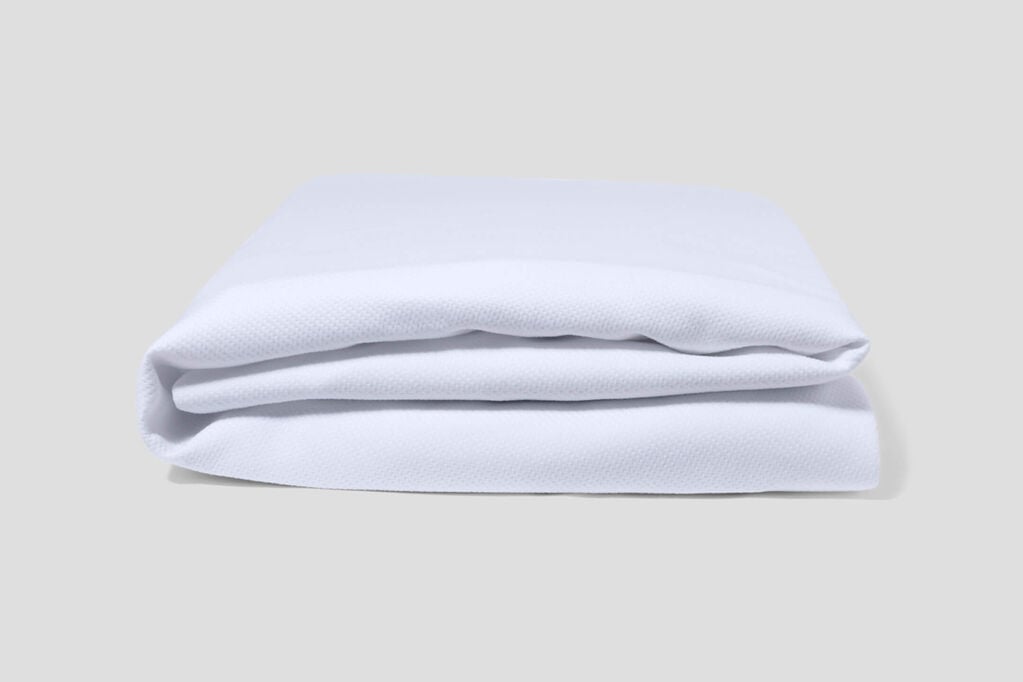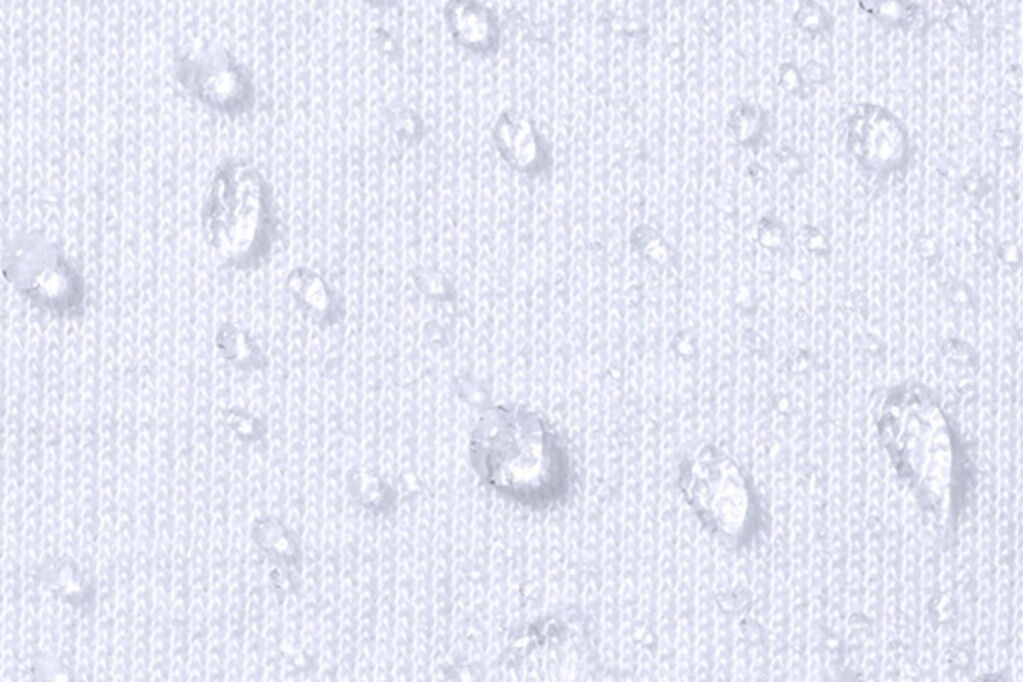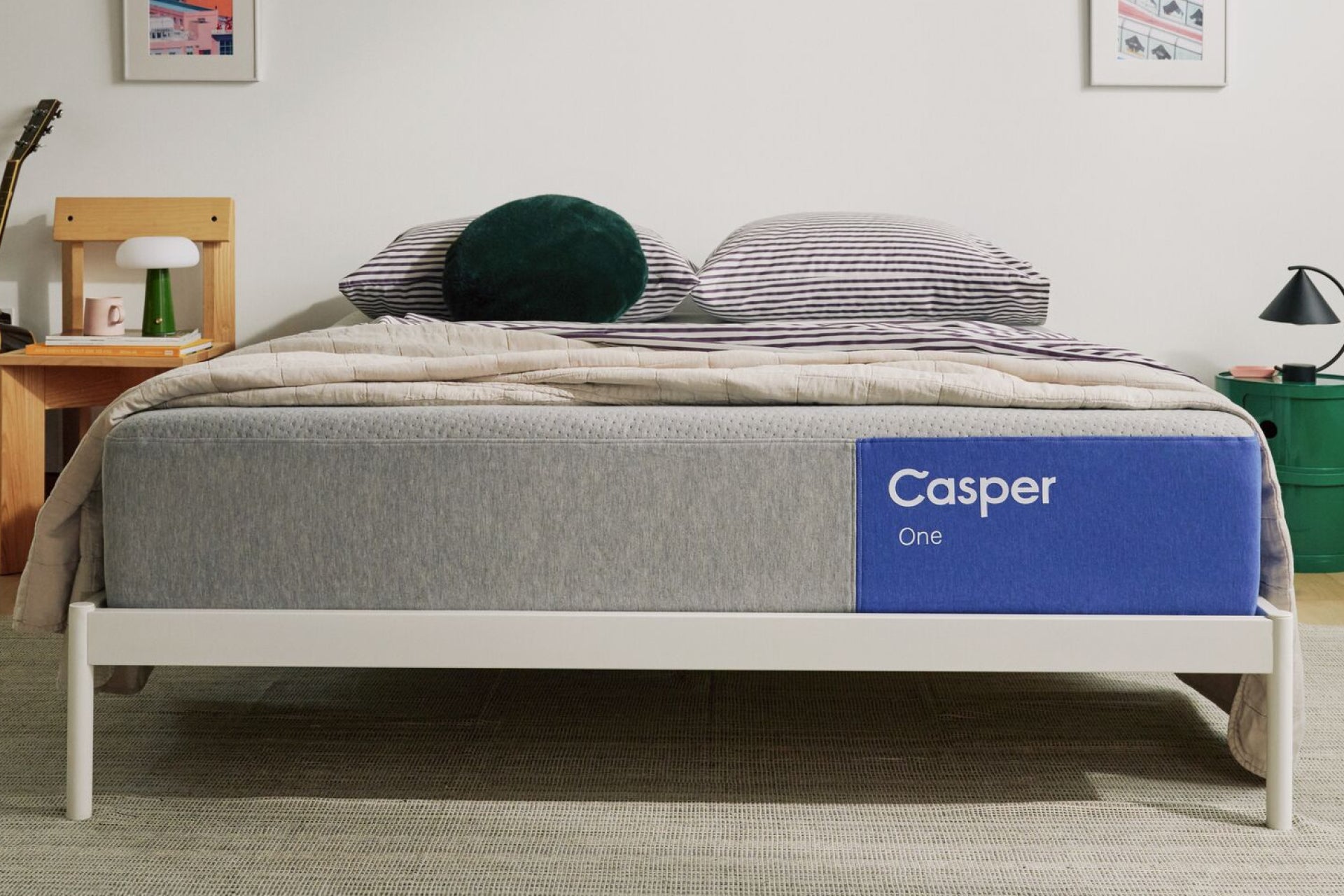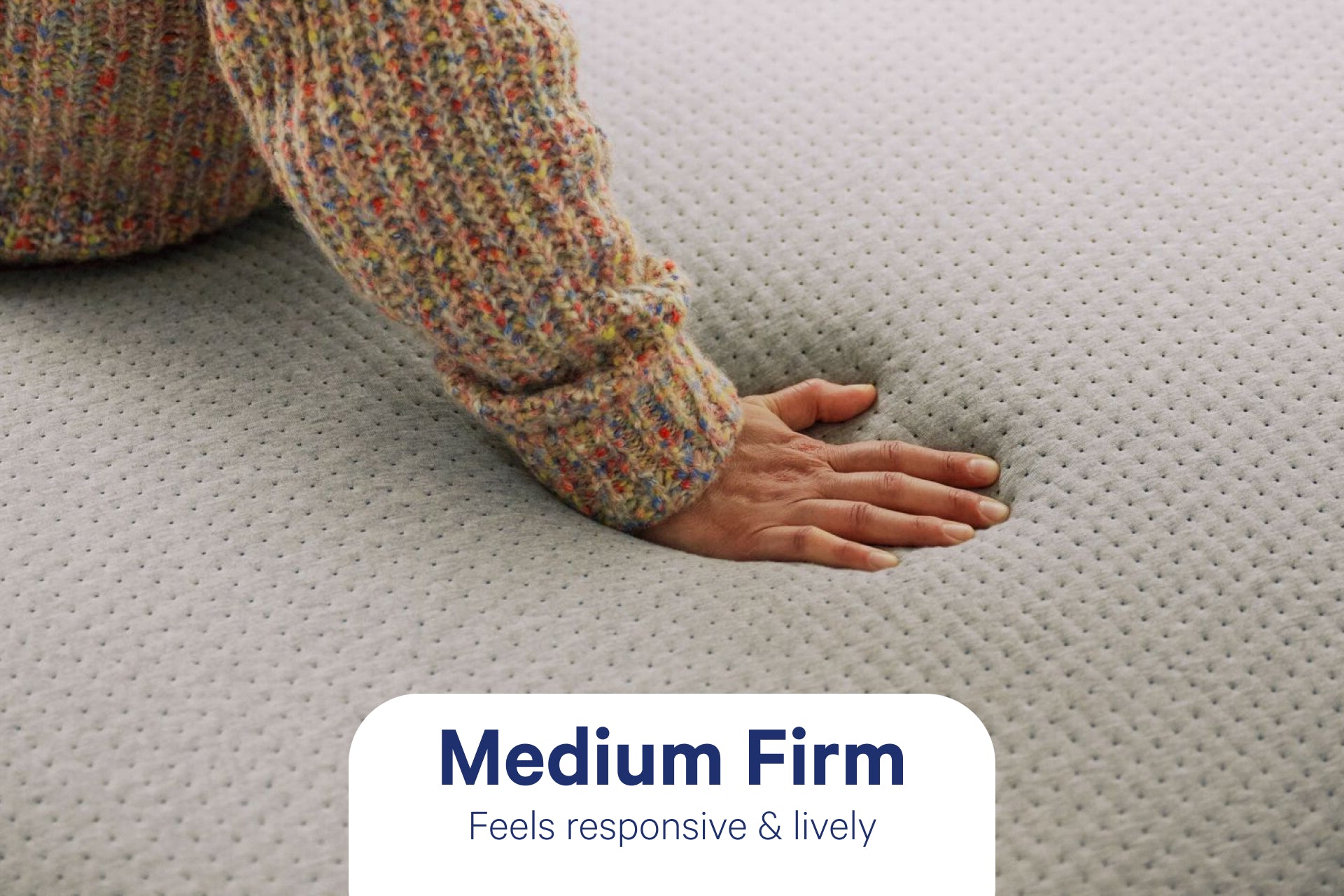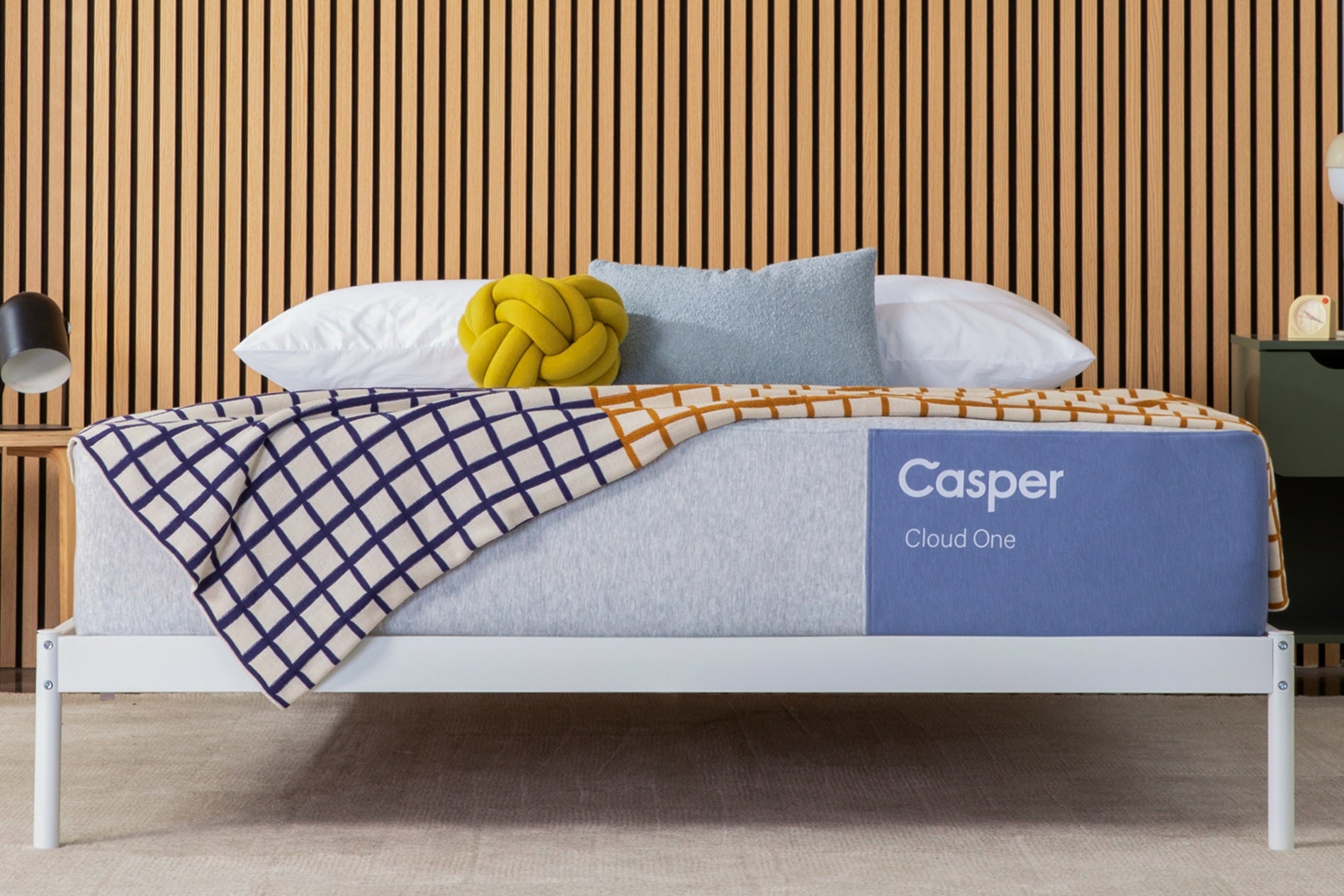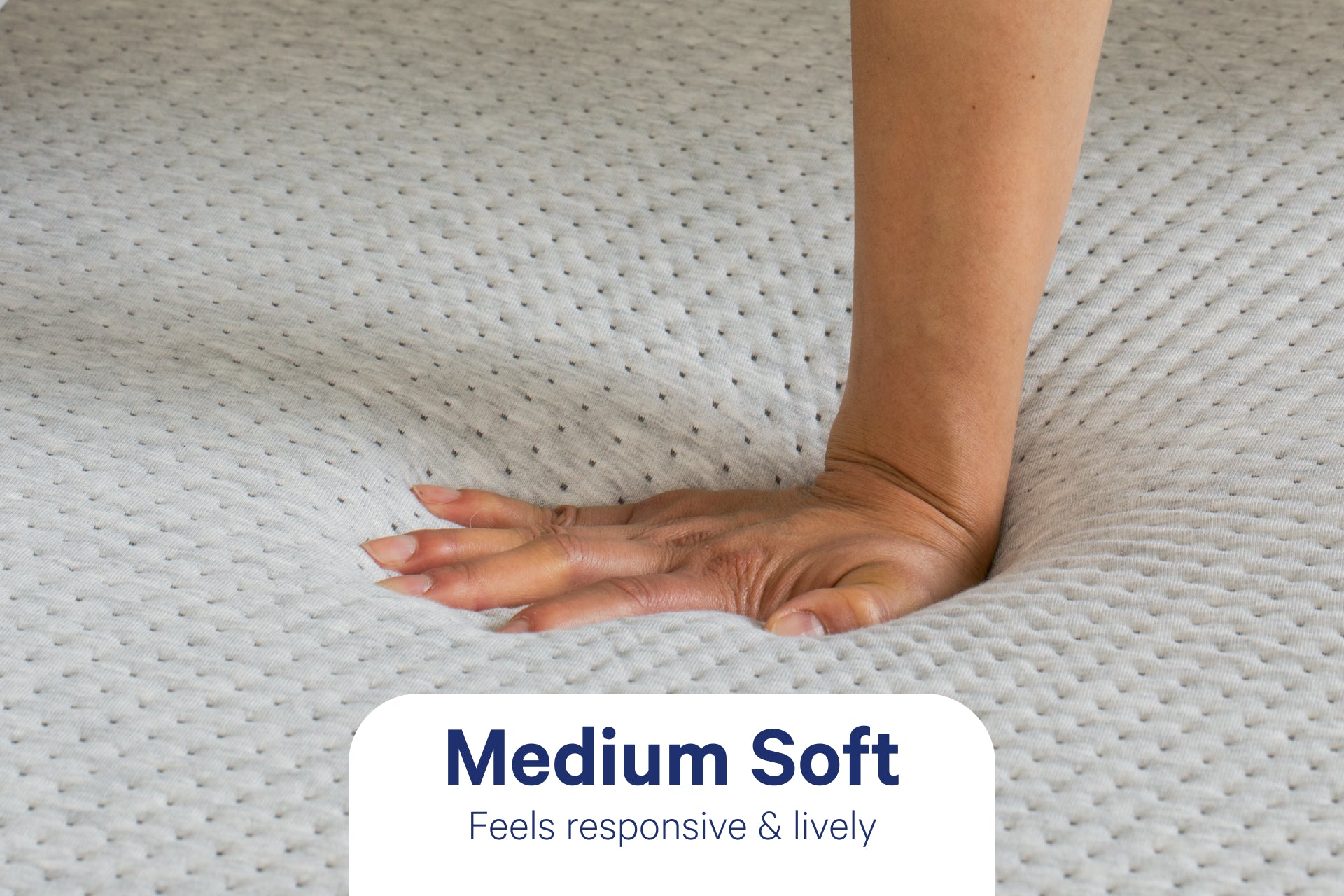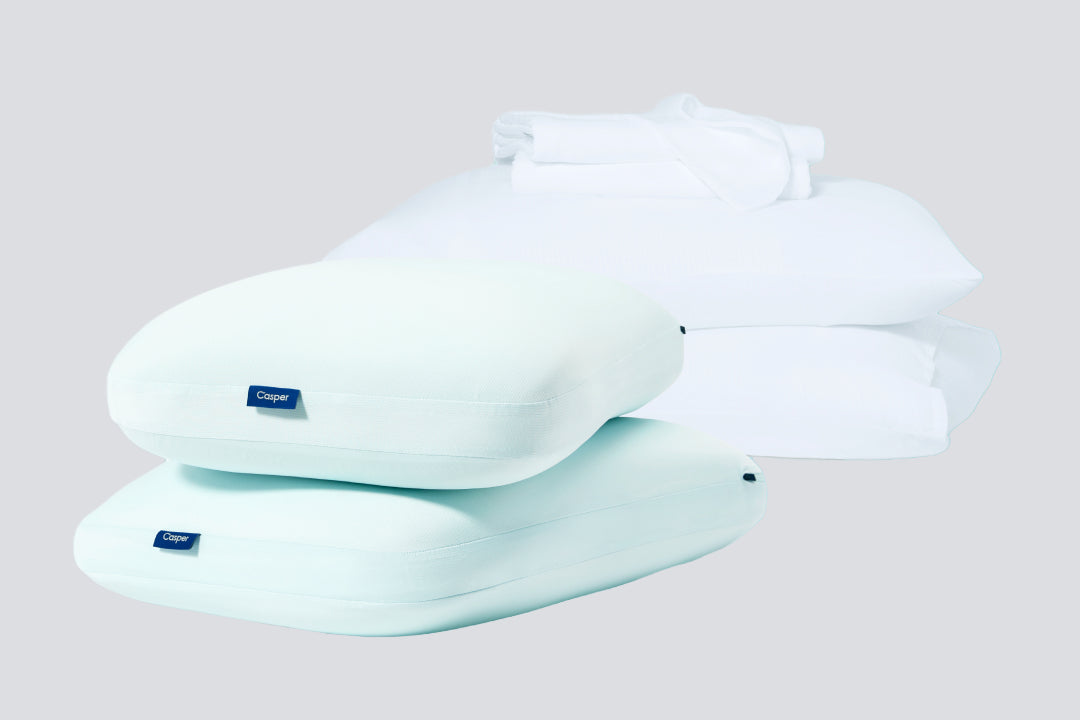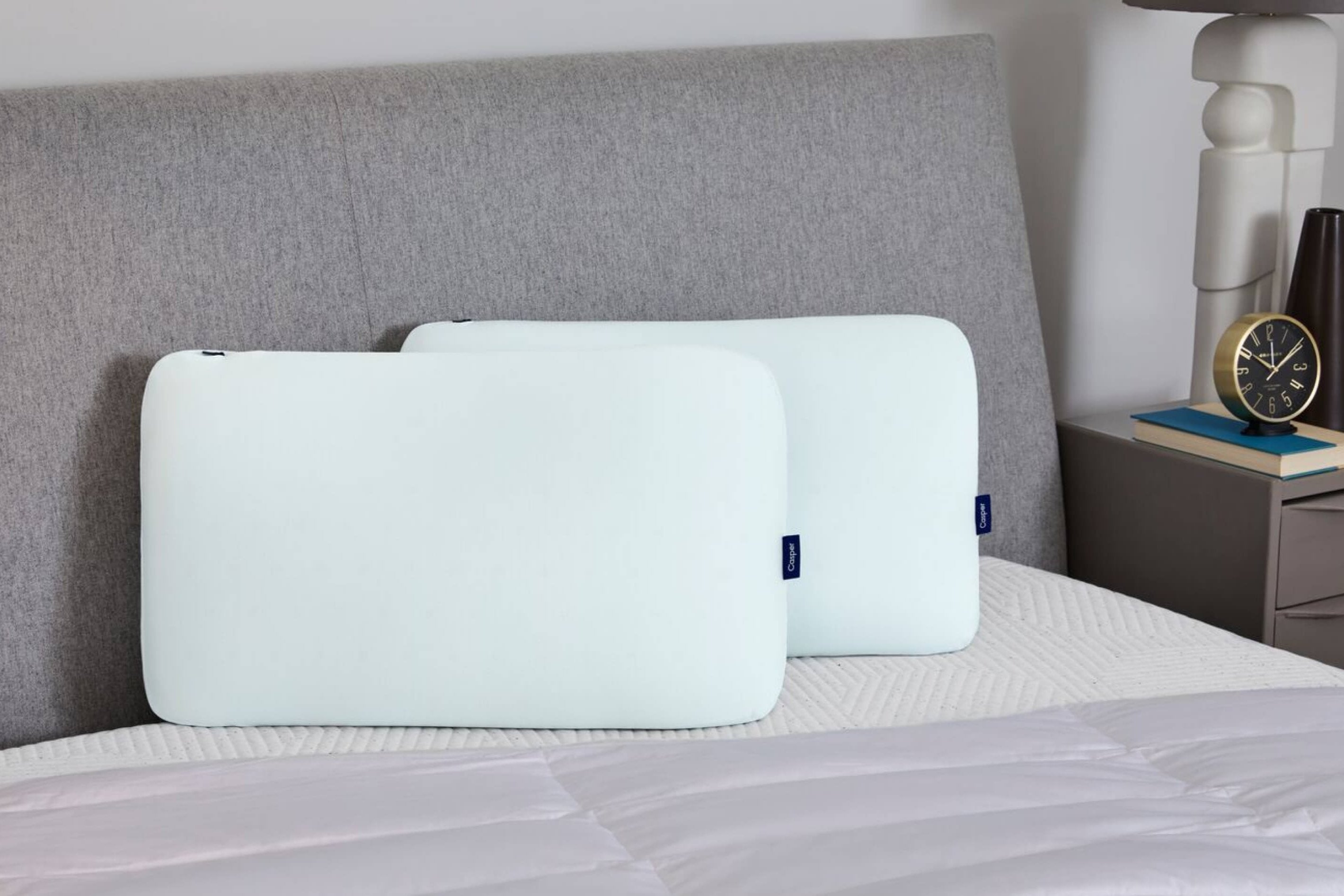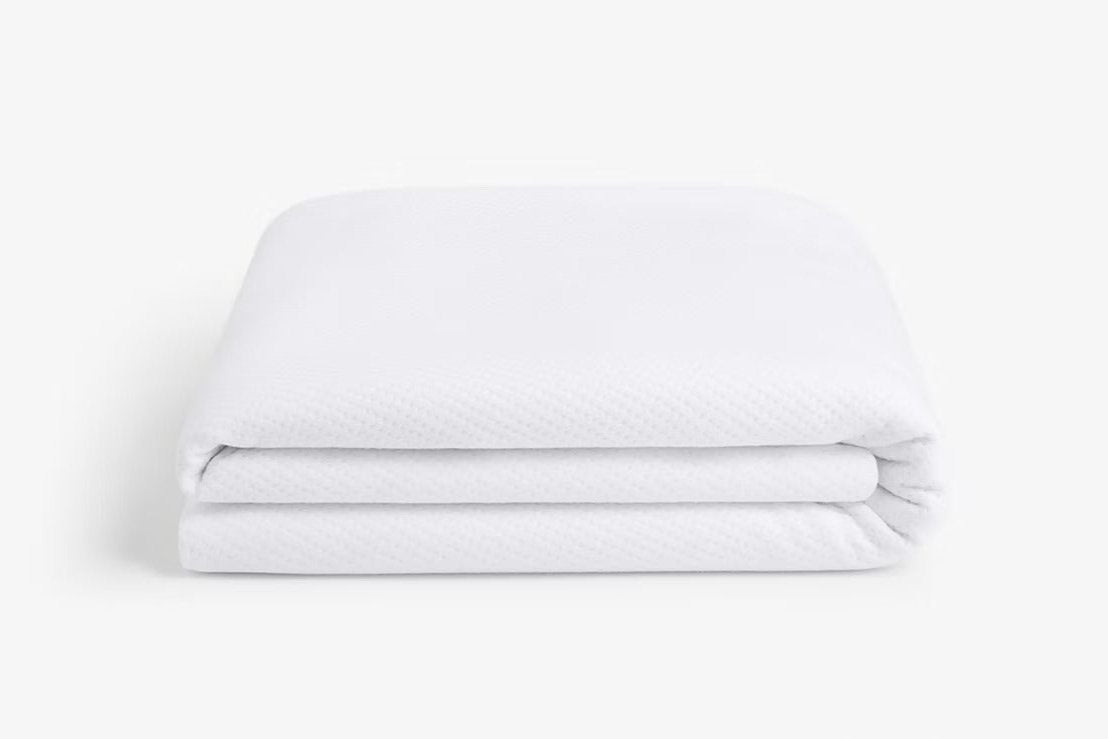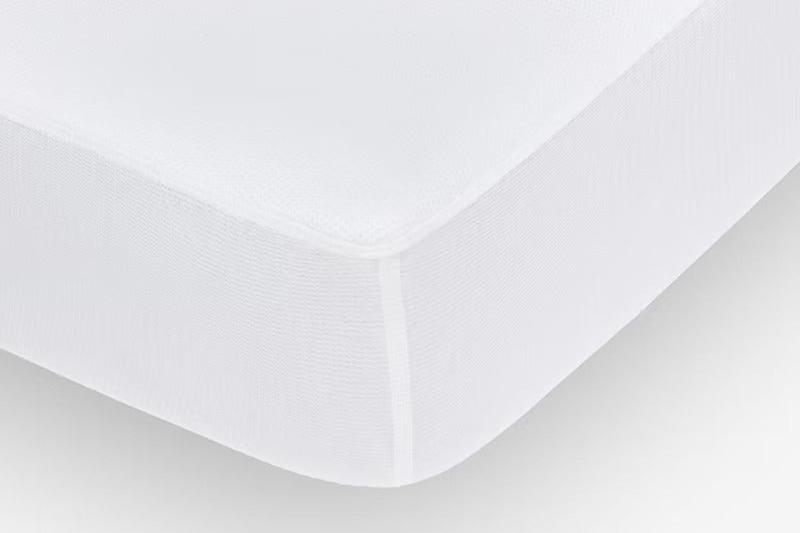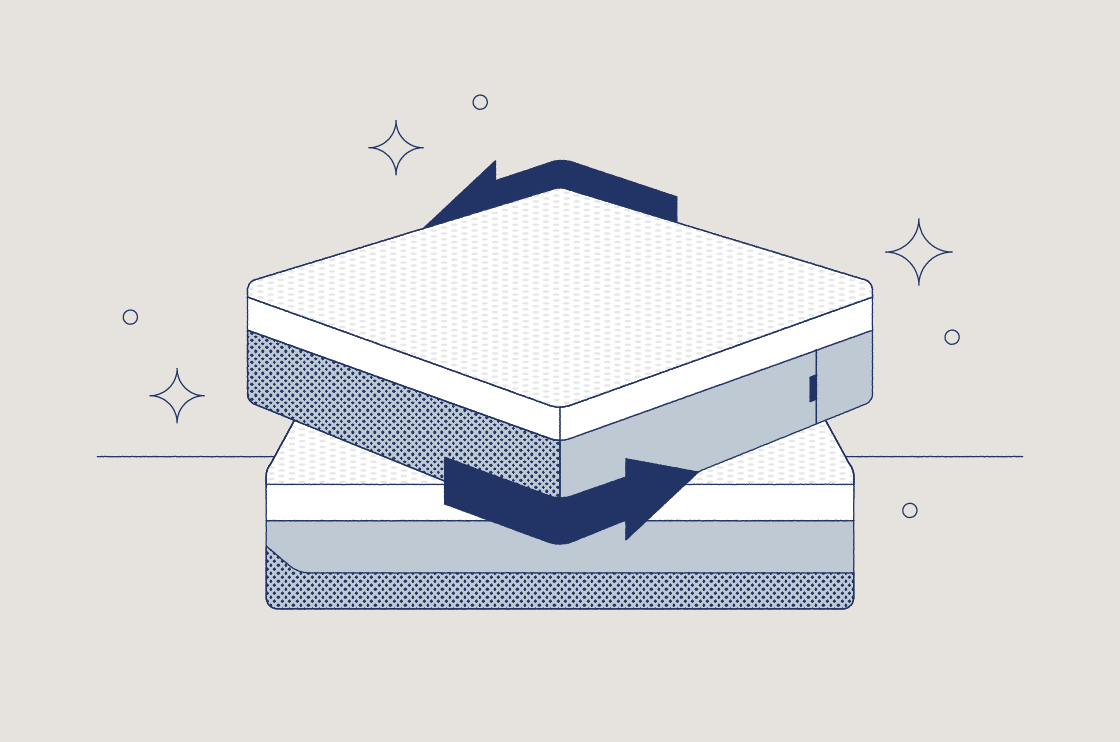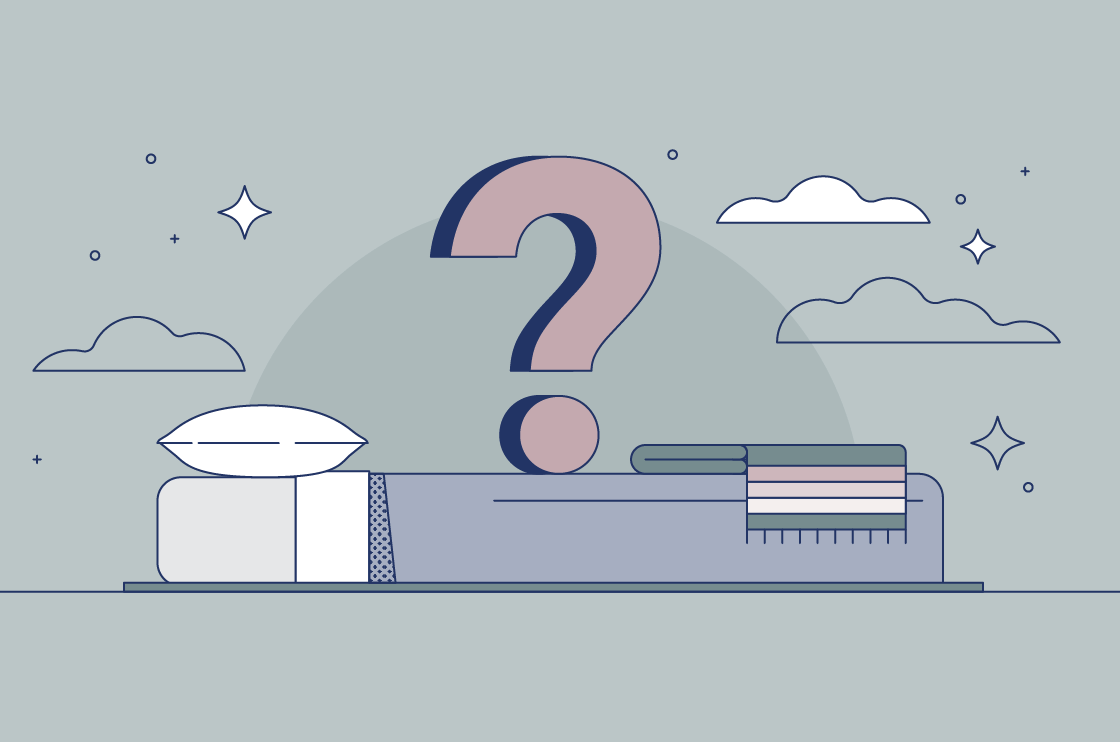It may surprise you that a mattress alone won’t necessarily give you the best possible sleep. To provide more protection and cushion than your original mattress, many sleepers add a mattress pad or protector to their beds. If you want to completely change the feel of your current bed, one accessory just might stand out: mattress toppers.
In this guide, we walk you through the purpose and benefits of a mattress topper, from extra support to wallet-friendly comfort. From there, you’ll be able to determine whether a mattress topper is the right fit for you.
So, what is a mattress topper? Keep reading to find out everything you need to know about this comfy addition to your bed.
Our luxuriously plush mattress topper adds Casper comfort to any mattress.
What Is a Mattress Topper?
A mattress topper is a two- to four-inch layer of memory foam, latex, or other material added on top of your mattress. Its purpose is to improve the feel of your bed by covering it with an extra layer of your choosing.
Whether you want your bed to feel warmer, cooler, firmer, or softer, you can pick a mattress topper that meets your sleeping needs. In addition, the added layer can help protect your mattress from stains and sagging.
Mattress Pad vs. Mattress Topper

Although they sound almost the same, there are important differences between a mattress pad vs. mattress topper. Here’s the definition and function of each bed accessory:
-
Mattress pad — A thin, one- to two-inch feather, latex, or fiber layer added on top of your mattress that provides light support and protects against dirt, allergens, and accidents.
- Mattress topper — A thick, two- to four-inch layer of memory foam, latex, wool, or feather material added on top of your bed that provides medium support and protects your mattress from stains and sagging.
Mattress pads are great for budget-conscious sleepers looking for a little extra support and protection against stains. Meanwhile, mattress toppers are thicker and provide even more support, making them an ideal choice for those looking to invest in a cozier sleep.
What Does a Mattress Topper Do? 7 Benefits
From regulating temperature to relieving pain, there are a lot of advantages to mattress toppers. Here are all the mattress topper benefits you should know:
Benefit #1: Adjusts Mattress Firmness
If your current mattress is too plush or firm, a mattress topper can adjust your bed’s feel to your liking. A mattress topper can make a soft mattress firmer or firm mattress softer.
While feather and wool mattress toppers add extra softness to firm beds, memory and latex foam toppers provide added support to plush beds. A mattress topper makes it possible to give your bed the exact firmness you need for a comfortable sleep.
Benefit #2: Can Regulate Bed Temperature
If you tend to sleep hot, a cooling mattress topper helps heat escape as you sleep. For example, the Casper Mattress Topper includes breathable foams with tiny pores designed to let hot air escape out and away from your body.

On the other hand, a wool mattress topper traps heat to keep you warm and cozy. Whatever your ideal sleeping temperature is, there’s a mattress topper that can make it happen.
Benefit #3: Can Provide Year-Round Comfort
The ability to choose your ideal bed temperature with a mattress topper makes it possible to enjoy a comfortable sleep throughout the changing seasons.
In the winter, you can cozy up with your regular mattress or wool mattress topper. Then, you can switch to your cooling mattress topper for the hot summer months. Adding a mattress topper allows you to enjoy the best temperature for sleep all year-round.
Benefit #4: Can Lift a Sagging Mattress
Over time, beds can form dips from nightly usage, but a mattress topper can be an effective way to fix a sagging mattress. If you notice that your mattress is starting to sag, a mattress topper’s thick layer of cushion can help revive it.
Although you can use a mattress topper as a remedy for a sagging mattress, it’s not a substitute for a bed that’s long past its prime. You’ll want to look out for signs you need a new mattress before buying a topper. Whether your bed is new or old, be sure to rotate your mattress often to help maintain lift.
Benefit #5: Helps Keep Your Mattress Clean
Since a mattress topper adds a thick layer on top of your bed, it serves as a protective barrier between your mattress and any pee stains, drink spills, or dirt. While not all mattress toppers are spill-proof, they will help keep your mattress clean.
In addition to stains, some mattress toppers can also prevent dust mites and allergens from getting into your bed. This added layer of protection helps you avoid bedroom allergies from allergens that may accumulate in your mattress over time.
Benefit #6: Saves You Money
Did you know that purchasing a mattress topper might actually save you money in the long run? A mattress topper prevents stains and keeps your mattress in better shape for more time, extending the typical lifespan of a mattress.
Before buying a mattress topper, check how often you should replace your mattress type. If you’ve already had your bed for over seven years, it may be time to invest in a new mattress. Then, you can add a mattress topper so it lasts even longer.
Benefit #7: May Help Relieve Pain
A mattress topper can be a smart investment for those who experience back pain. That’s because beds that are too firm can worsen backaches. According to a study, a softer medium-firm mattress is better for alleviating back discomfort.
If your current mattress isn’t ideal for aches and pains, a mattress topper can help provide the plush support you need. For example, the Casper Mattress Topper offers three layers of comfort, with premium latex foams and a plush top layer to create a soft, buoyant feel.
Types of Mattress Toppers
There are several different types of mattress toppers that each have their own unique feel. To help you decide which is best for you, here are the pros and cons of various mattress topper materials:
1. Memory Foam
Memory foam mattress toppers are made with viscoelastic polyurethane foam designed to provide structured support. If you’re not ready to buy a new memory foam mattress, a memory foam mattress topper can be a great substitute.
Pros
- Supports your body
- Won’t squeak or bounce
- Lasts for years
Cons
- Can be expensive
- Can be harder to switch positions
- May trap body heat
For those who enjoy firmer support and don’t mind a little investment, a memory foam mattress topper offers the structured comfort you need. A more affordable foam option is the Casper Layer, a comfortable polyurethane foam mattress topper with perfect sink and bounce.
2. Synthetic Latex Foam
Synthetic latex foam mattress toppers offer both the support of memory foam and the cooling properties of natural fibers. They provide just the right balance for sleepers who want the best of both materials.
Pros
- Supports your body
- Provides firm yet cushioned feel
- Allows heat to escape
- Limits squeaking and bouncing
- Lasts for years
Cons
- Costs more than other mattress toppers
- Can be chilly during winter
The triple-layer Casper Mattress Topper is made with premium latex foams that add comfort to any mattress.
3. Wool
Wool mattress toppers have a plush texture that offers soft, antimicrobial, and long-lasting comfort. Their cushiony, natural wool material traps heat to keep you warm through the night.
Pros
- Light and plush cushion
- Hypoallergenic and antimicrobial
- Can keep bed bugs and mites away
- Provides cozy warmth
- Lasts for years
Cons
- Expensive
- Not many varieties
- Minimal body support
- Sometimes smells woodsy
Sleepers who enjoy a warmer sleep without as much support may want to opt for a wool mattress topper.
Feather or Down
Feather or down mattress toppers are stuffed with feathers or down, the soft underbelly feathers on geese or ducks, providing a luxuriously plush feel.
Pros
- Extremely soft
- More affordable
- Helps facilitate airflow
Cons
- Minimal body support
- Feathers can poke through
- Can damage or crinkle easily
- May trigger allergies
If you want a budget-friendly, ultra-plush feel and don’t need much support, a feather or down mattress topper might be the right choice for you.
How To Use a Mattress Topper
Before getting a mattress topper, it’s important to understand the kind of care involved. Continue reading to learn how to put a mattress topper on your bed and how to wash a mattress topper.
How To Put On a Mattress Topper
Using a mattress topper simply adds one step to your normal routine. Here’s how to make your bed with a mattress topper:
- Place bed skirt below mattress
- Add mattress
- Roll on mattress topper
- Position mattress protector or pad, if applicable
- Put on fitted sheet
- Tuck in flat sheet
- Lay down comforter or duvet
- Arrange pillows
When rolling your mattress topper onto your bed, be sure to align it with the four corners of your mattress.
If your mattress topper doesn’t have a non-slip, viscoelastic bottom, you may want to use non-slip pads below your mattress topper so it doesn’t slide. Luckily, the Casper Mattress Topper and Casper Layer already come with a viscoelastic bottom for a cozy, slip-free sleep.
How To Clean a Mattress Topper
To prevent your mattress topper from collecting dust and dirt, you’ll need to clean it properly. It’s best to wash or spot-clean your mattress topper four times per year to avoid buildup.
Although many wool and down mattress toppers can be cleaned in a washing machine, you should avoid putting most memory and latex foam mattress toppers in machines. The washer and dryer can cause shrinkage in foam toppers, so you’ll need to clean a foam mattress topper using the following machine-free steps:

Be sure to follow the instructions on your mattress topper’s label so you know whether machine- or hand-washing works best.
Do You Need a Mattress Topper?
Still deciding whether you need a mattress topper? Here are some final signs it might be a good idea to invest in a topper for your bed:
- You want a warmer or cooler mattress
- You want a firmer or softer mattress
- Your mattress is sagging
- You don’t want to invest in a new mattress yet
FAQs
If you still have unaddressed concerns about mattress toppers, we’re here to help. Check out the answers to the most common questions about this bed accessory:
Yes, mattress toppers work for many sleepers. If your current mattress isn’t the right firmness or temperature for you, a mattress topper can help adjust the temperature and make your bed more firm or plush. In addition, mattress toppers can help your mattresses last longer, saving you money down the road.
A mattress topper is used to change the feel of your bed. Depending on your preferences, you can find a mattress topper that makes your bed cooler, warmer, firmer, or softer. No matter what you choose, a mattress topper helps protect your bed from stains and makes it last longer.
If you don’t love the feel of your current mattress, a mattress topper can definitely be worth it. You’ll be able to adjust the temperature and firmness of your bed while protecting it from stains and extending its lifespan.
Yes, a mattress topper goes under a mattress pad or a mattress protector. That way, your mattress topper has an extra layer of protection from sweat and spills.
You can put many wool or down mattress toppers in the washing machine, but memory and latex foam mattress toppers should be spot-cleaned to avoid shrinkage.
To clean a foam mattress topper, dab stains with a towel, mix a vinegar solution in a spray bottle, spritz any stains, sprinkle baking soda onto the topper, wait for eight hours, and dry your topper with a handheld vacuum.
Read your mattress topper’s label carefully to determine exact cleaning instructions.
A mattress topper can be a quick, cost-effective solution for an older, sagging mattress. However, if you’ve had your current bed for longer than a mattress should last (an average of seven to 10 years), a mattress topper can only do so much.
In that case, you may want to consider investing in a new mattress to make sure you’re getting good-quality sleep.
The difference between a mattress pad and a mattress topper is in their thickness and function. A mattress pad is a thin, one- to two-inch layer that provides a little cushion and protects your bed from stains and allergens. Meanwhile, a mattress topper is a thick, two- to four-inch layer of memory foam, latex, wool, or feather material that gives your bed even more support and protection.
A mattress pad is great for sleepers who already love the feel of their mattress but want a budget-friendly, additional layer of comfort and protection. On the other hand, a mattress topper is better for those who want to alter the feel of their mattress entirely.
There are a lot of bed accessories available, so it’s helpful to have a clear understanding of what a mattress topper is and what it can do for you before you buy. If you decide to invest in a mattress topper, you might just get the deep sleep of your dreams.
For your best rest, check out the Casper Mattress Topper.

